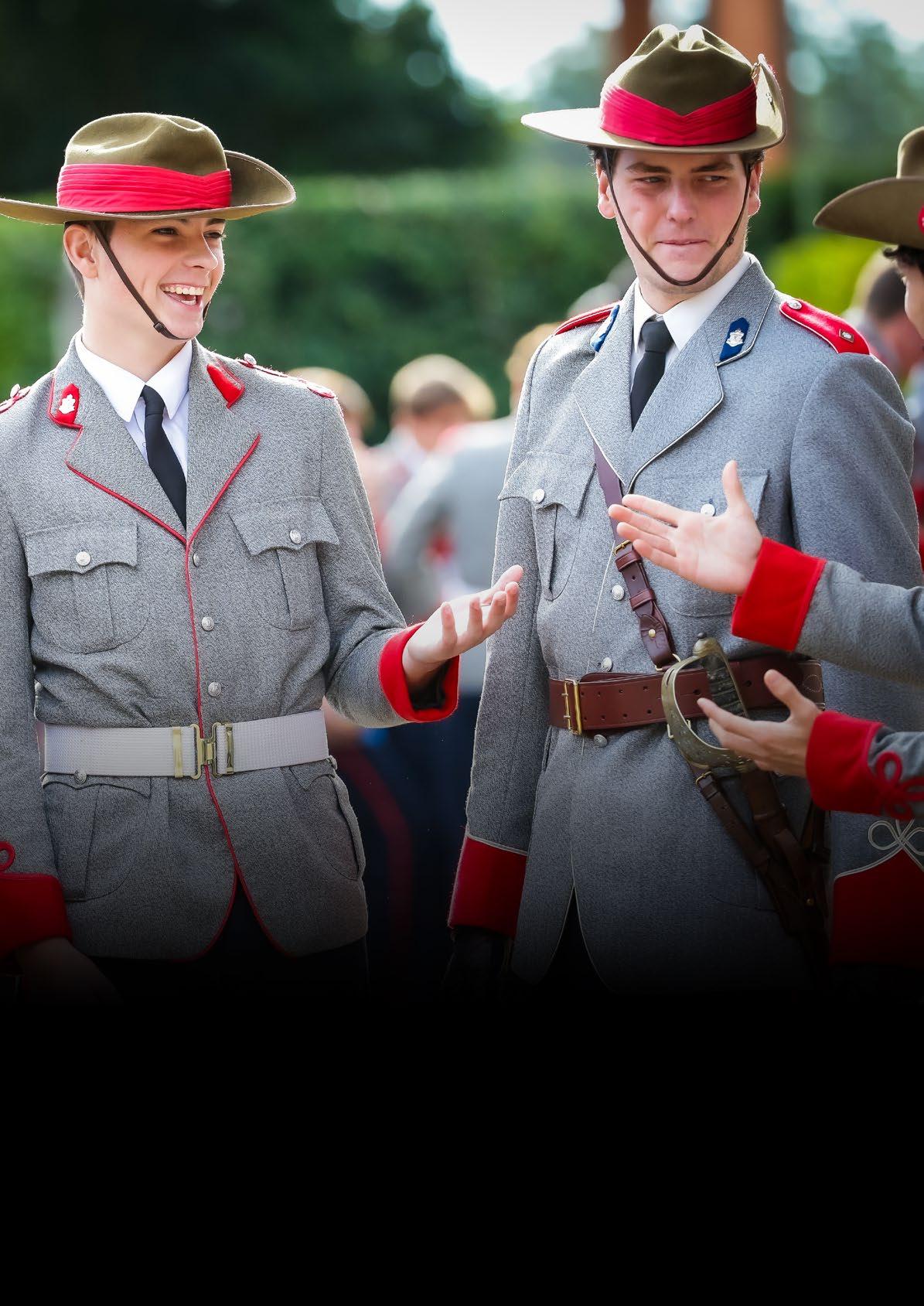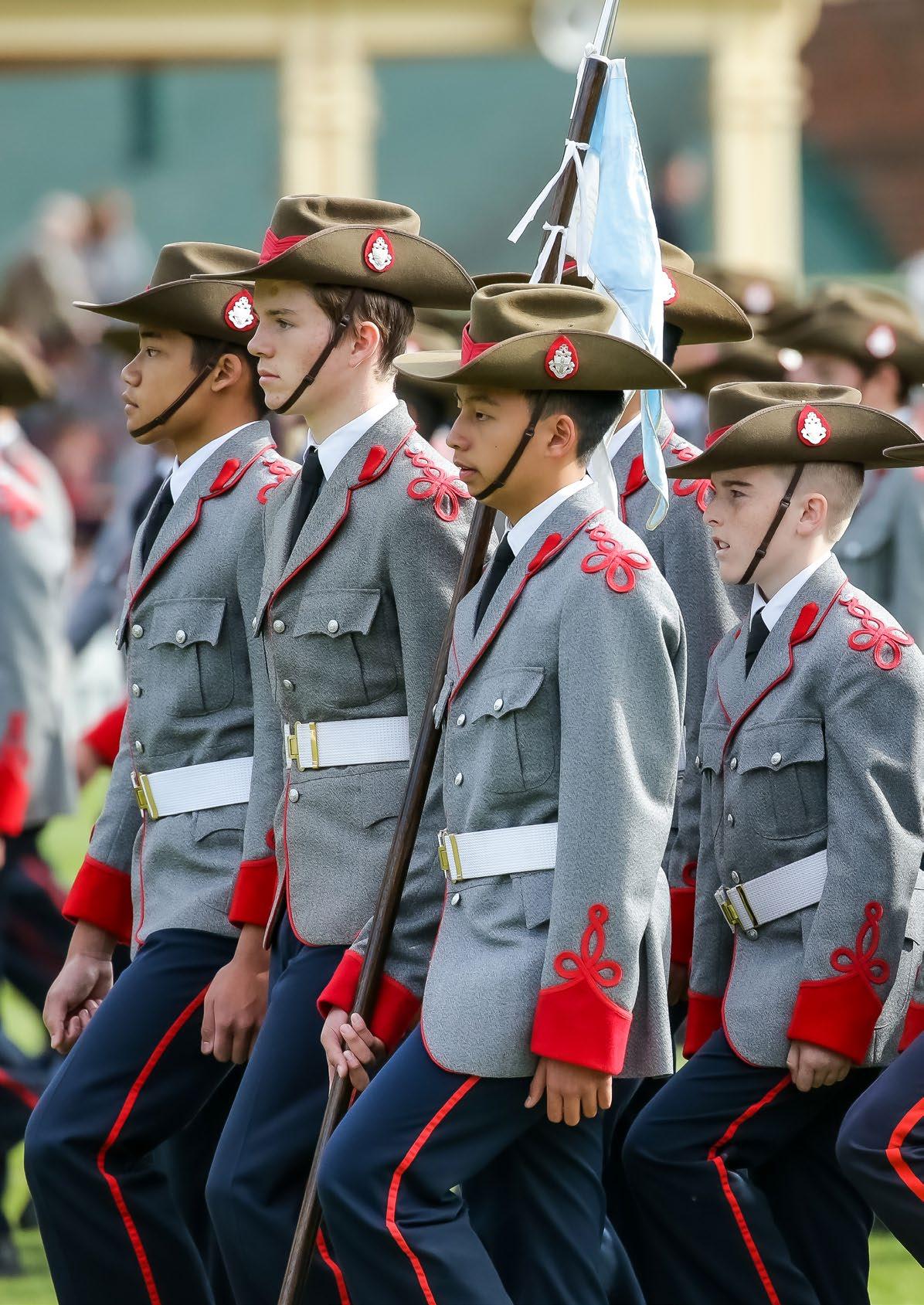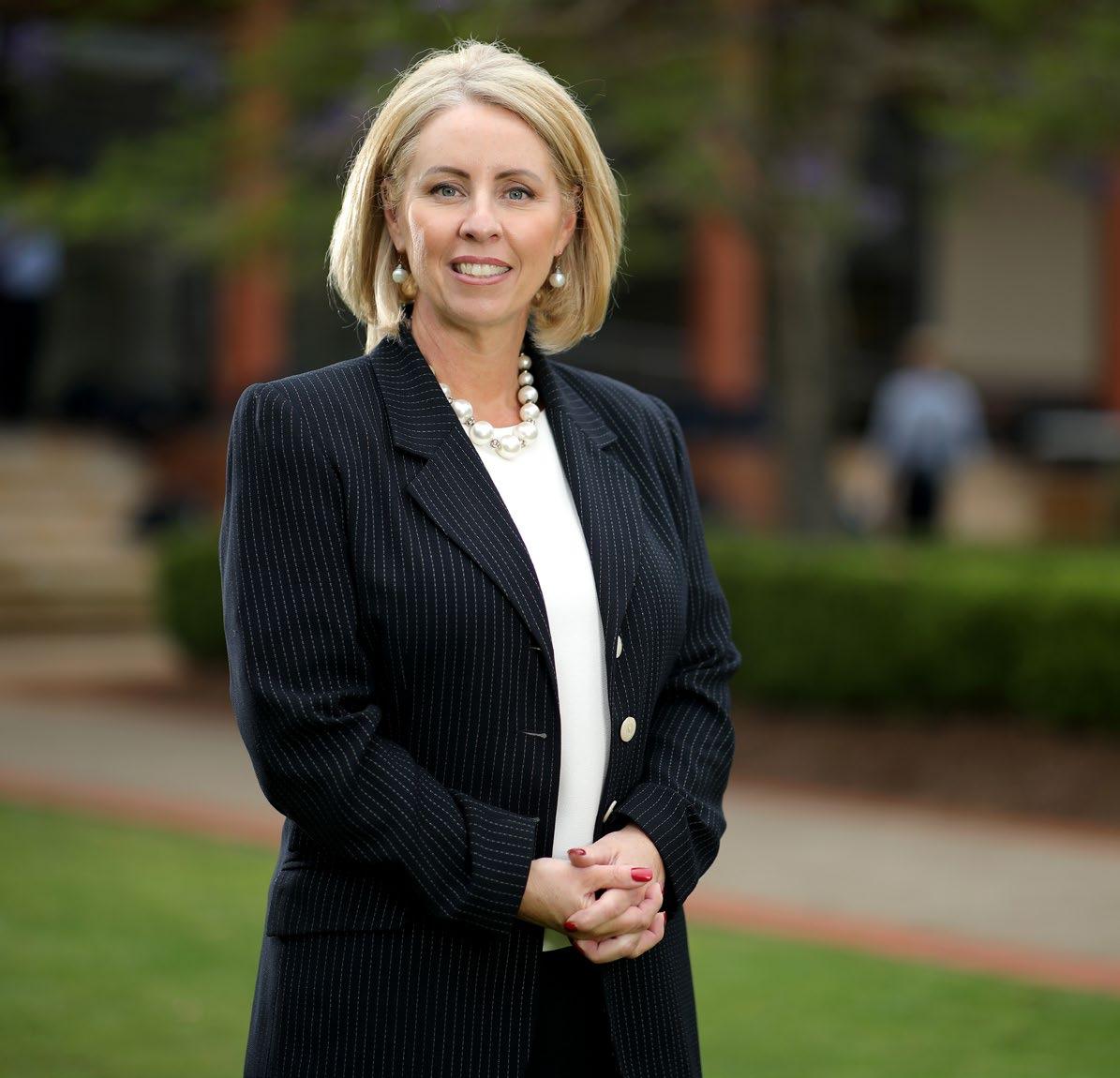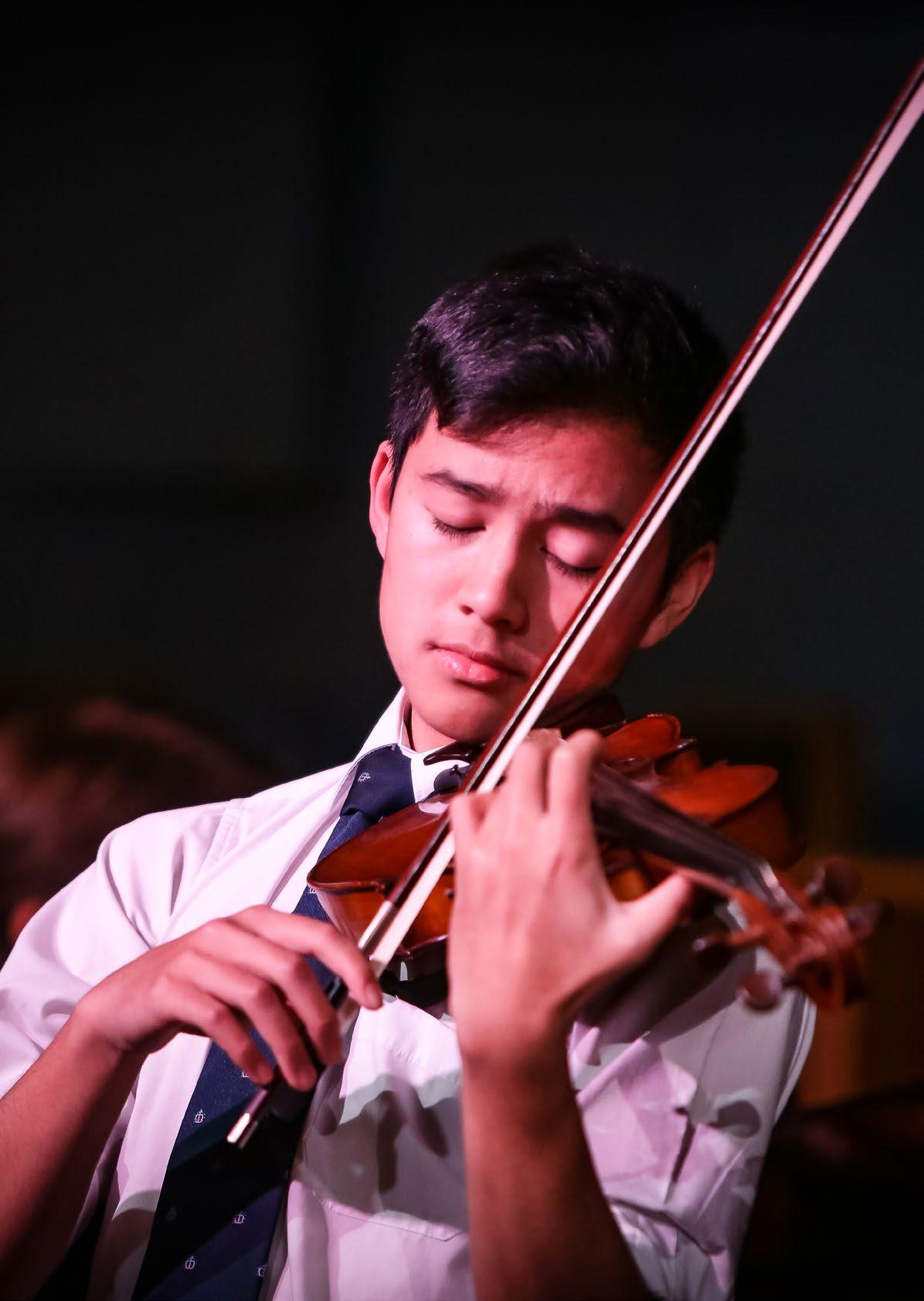International Baccalaureate (IB) Diploma Programme


The King’s School is a Christian community that seeks to make an outstanding impact for the good of society through its students, and by the quality of its teaching and leadership in education.
THE KING’S SCHOOL MISSION STATEMENT

Welcome
At The King’s School, our commitment to developing Kingsmen who enter the world as Global Thought Leaders means providing rich opportunities and multiple pathways that enable each student to achieve success far beyond the School gates. With this in mind, The King’s School is embarking on an exciting opportunity to further meet this need through the introduction of The International Baccalaureate (IB) Diploma, a standalone credential that can be studied as an alternative to the HSC.
The King’s School is an accredited Primary Years Programme (PYP) School and we are currently a candidate school for the IB Diploma Programme. The School is currently undergoing the accreditation process for the IB, which includes a consultation visit by IB advisers, followed by an authorisation visit in 2024/2025. If successful, The King’s School will offer the IB Diploma to Year 11 students from 2025, making our School one of only a small number in NSW to offer both the HSC and IB courses in Years 11 and 12.
Importantly, by offering a curriculum designed to develop the skills required of global citizens, the IB aligns with our School’s mission and values. The IB Diploma Programme (IBDP), offered to students entering Years 11 and 12 is a diverse and rigorous pattern of study that provides an excellent foundation for higher education on a global scale. The IBDP enables students to direct their own learning pathway and the skills and confidence they need to thrive and make a lasting difference. The approaches to learning and teaching allow IBDP students to develop transferable and lifelong skills and attributes, such as critical thinking, international mindedness, creativity, agency and resilience.
The IB curriculum is coherent, principled, rigorous and internationally-minded, it promotes connection, whilst respecting the character and autonomy of
individual disciplines. Furthermore, it empowers teachers as the architects of learning excellence, supported by a global network, to develop a strong reputation for successful outcomes for the good of society. Providing a world-class preparation for university and life beyond the gates of King’s, the IBDP has seen students consistently demonstrate the critical thinking and research skills needed to excel in their university studies.
Adoption and implementation of the IBDP is another way The King’s School seeks to develop Global Thought Leaders. Being a Global Thought Leader means understanding, respecting and valuing different cultures, embracing diversity and knowing that different perspectives have a great deal to offer. Such leaders have a view of the world in which people see themselves connected to the global community and assume a sense of responsibility towards its members. The IB aspires to help schools develop well-rounded students who respond to challenges with optimism and an open mind, are confident in their own identities, make ethical decisions, join with others in celebrating our common humanity, and are prepared to apply what they learn in real-world, complex and unpredictable situations.
Mrs Jacqueline Camilleri Deputy Head (Academics) ︱ The King’s School


“
The King’s School provides a unique foundation for developing Global Thought Leaders.
International Baccalaureate Diploma Programme
IB Mission Statement
The International Baccalaureate aims to develop inquiring, knowledgeable and caring young people who help to create a better and more peaceful world through intercultural understanding and respect. To this end, the organisation works with schools, governments and international organisations to develop challenging programmes of international education and rigorous assessment. These programmes encourage students across the world to become active, compassionate and lifelong learners who understand that other people, with their differences, can also be right.
The IB Diploma Programme was established in 1968 and is a two-year academically challenging and balanced programme of education, with final examinations, that prepares students aged 16 to 19 for success at university and in life beyond. The IB Diploma Programme has been designed to address the intellectual, social, emotional and physical wellbeing of students. It has a distinctive educational philosophy and is offered in over 150 countries. The organisation has been motivated by a vision that critical thinking and exposure to a variety of points of view will encourage international understanding by young people.
All IB programmes, from the PYP through to the IB Diploma:
• Have a strong international focus.
• Draw on content from educational cultures around the world.
• Require study across a broad range of subjects.
• Give special emphasis to learning languages.
• Include both individual subjects and transdisciplinary/interdisciplinary areas.
• Focus on developing the skills of learning.
• Provide opportunities for individual and collaborative planning and research.
• Encourage students to become responsible and active.
• Include both individual subjects and transdisciplinary/interdisciplinary areas.
• Focus on developing the skills of learning.
“
A recent study among Diploma Programme schools in Australia, China and India found that international - mindedness can be categorised as a tool for individual gain, an orientation towards shared understanding and a way to push boundaries for change.











































































DIPLOMA PROGRAMME INTERNATIONA L–MINDEDNESS MATHEMATICS AND LITERATURE INDIVIDUALS T H E ORY OFKNOWLEDGE EXTENDED ESS A Y CREATIVITY , AC TIVITY,SERVICE APPROACHES TO TEACHING APPROACHES TO LEARNING SCIENCES STUDIES IN LANGUAGE ACQUISITION THE ARTS LANGUAGE ANDSOCIETIES LANGUAGE AND LITERATURE LANGUAGE ACQUISITION INDIVIDUALS AND SOCIETIES MATHEMATICS SCIENCES THE ARTS IB DIPLOMA PROGRAMME SUBJECT GROUPS
What is An International Baccalaureate Learner Profile Attribute?
The IB is organised around Learner Profile attributes. These represent a broad range of human capacities and responsibilities that go beyond intellectual development and academic success. They imply a commitment to help all members of the School community learn to respect themselves, others and the world around them.

AS IB LEARNERS WE STRIVE TO BE:
?INQUIRERS
We nurture our curiosity, developing skills for inquiry and research. We know how to learn independently and with others. We learn with enthusiasm and sustain our love of learning throughout life.
THINKERS
We use critical and creative thinking skills to analyse and take responsible action on complex problems. We exercise initiative in making reasoned, ethical decisions.
KNOWLEDGEABLE
We develop and use conceptual understanding, exploring knowledge across a range of disciplines. We engage with issues and ideas that have local and global signicance.
COMMUNICATORS
We express ourselves condently and creatively in more than one language and in many ways. We collaborate effectively, listening carefully to the perspectives of other individuals and groups.
PRINCIPLED
We act with integrity and honesty, with a strong sense of fairness and justice, and with respect for the dignity and rights of people everywhere. We take responsibility for our actions and their consequences.
RISK-TAKERS
We approach uncertainty with forethought and determination; we work independently and cooperatively to explore new ideas and innovative strategies. We are resourceful and resilient in the face of challenges and change.
OPEN-MINDED
We critically appreciate our own cultures and personal histories, as well as the values and traditions of others. We seek and evaluate a range of points of view, and we are willing to grow from the experience.
BALANCED
We understand the importance of balancing different aspects of our lives – intellectual, physical, and emotional – to achieve wellbeing for ourselves and others. We recognise our interdependence with other people and with the world in which we live.
CARING
We show empathy, compassion and respect. We have a commitment to service, and we act to make a positive difference in the lives of others and in the world around us.
REFLECTIVE
We thoughtfully consider the world and our own ideas and experience. We work to understand our strengths and weaknesses in order to support our learning and personal development.
International Baccalaureate in Detail
The IB Diploma is a two year course of study. All IB students study six subjects from different academic areas of which three are studied at a higher level and three at a standard level. IB subjects are graded on a 1- 7 scale with seven being the highest score. To qualify for the award of the IB Diploma a student must receive a combined score of 24 points across six subjects with at least 12 points from higher level subjects and a minimum of nine points from the standard level subject. In addition to the six subjects, IB Diploma students are required to complete three core elements – Theory of Knowledge, the Extended Essay, and CAS (Creativity, Activity, Service). The maximum points that can be awarded to an IB Diploma student is the full score of 45 with 42 points generated across the six subjects and three bonus points derived from Theory of Knowledge and the Extended Essay. To be eligible for the award of the Diploma students must receive at least a D in Theory of Knowledge and the Extended Essay.
Geography
GROUP 1: Studies in language and literature (Native Language e.g. English) GROUP 2: Language acquisition (Foreign Language e.g. French B, German B) GROUP 3: Individuals and societies • Language A: literature • Language A: language and literature • Literature and performance • Classical languages • Language B • Language ab initio • Business management •
Society •
•
•
•
•
•
•
•
•
GROUP 4: Sciences GROUP 5: Mathematics GROUP 6: The Arts • Biology • Chemistry • Computer Science • Design technology • Environmental systems and societies • Physics • Sports, exercise and health science • Mathematics: analysis and approaches • Mathematics: applications and interpretation • Dance • Film • Music • Theatre • Visual arts Disclaimer: Whilst the School will provide a variety of IB Diplma Courses available for selection, not all IB courses about may be offered and some courses may require minimum students numbers to run.
Digital
Economics
Global Politics
History
Information technology in a global society
Philosophy
Psychology
Social and cultural anthropology
World religions
The three core elements of the IB Diploma Programme encourage students to reflect on the nature of knowledge, complete independent research and undertake a project that involves service.
THEORY OF KNOWLEDGE
Students reflect on the nature of knowledge and how we know what we claim to know.
IB PROGRAMME CORE ELEMENTS
EXTENDED ESSAY
An independent, self-directed research project that culminates in a 4000 word paper.
WHAT IS THE CORE AND HOW IS IT ASSESSED?
CREATIVITY, ACTIVITY, SERVICE (CAS)
Students complete a project related to these three concepts to encourage experiential learning.
The Core comprises Theory of Knowledge, the Extended Essay and CAS (Creativity, Activity, Service). Theory of Knowledge is 100 hour course taught over two years about critical thinking and inquiry into the nature of knowledge. It is assessed through an oral presentation and a 1600 word essay. The Extended Essay is a 4000 word independent research essay into a topic in which the student is interested. The student is guided by a supervisor. CAS is a journey of self-discovery in which students participate in a range of activities to meet eight learning outcomes.
Alumni of the Diploma Programme attend top-ranking universities, studies find.
(https://ibo.org/globalassets/publications/ib-research/dp/ chinasummaryinenglishweb.pdf)
Diploma Programme students not only do well academically while in high school, but also go on to perform well at the university level.
(https://ibo.org/globalassets/publications/ib-research/dp/dp-student-enrollmentoutcomes-us-brief-en.pdf)
“
The IB approaches to teaching and learning are centred on a cycle of inquiry, action and reflection.
The International Baccalaureate Diploma and the HSC

CURRICULUM
IB DIPLOMA PROGRAMME
• Six academic subjects studied over two years.
• Mandatory studies in a native language (e.g. English), an acquired language, individuals and societies, experimental science and Mathematics.
• The Study of a foreign language is mandatory.
• It is not just an academic programme. There are compulsory three core elements which encourage experiential learning.
• Equips students with the skills required for tertiary learning and promotes a spirit of intellectual inquiry.
• Ability to work and learn independently.
IB DIPLOMA PROGRAMME
HIGHER SCHOOL CERTIFICATE
• Year 11: Preliminary curriculum – subjects studied to the value of a minimum of 12 units.
• Year 12: A minimum of four subjects including mandatory study in English.
• No requirement to complete ‘non-academic’ courses.
• Caters to serious academic study and focused vocational study.
ASSESSMENT METHODS
HIGHER SCHOOL CERTIFICATE
• Up to 35% internally and up to 80% externally assessed depending on subjects studied.
• Internal assessments either integrated into the teaching programme or completed by the middle of Term 3 Year 12.
• Students will take some subjects at higher level (HL) and some at standard level (SL), with at least three (but not more than four) subjects at higher level, and the remaining at standard level.
• 50% School based assessment and 50% final HSC assessment in all subjects excluding English Extension.
• School based assessments are spread across Year 12.
RESULTS
IB DIPLOMA PROGRAMME
• Individual subjects are graded on a 1- 7 scale with 7 being the highest score.
• Three Core elements are also required worth 3 bonus points - Theory of Knowledge, the Extended Essay, and CAS (Creativity, Activity, Service).
• All subjects contribute equally to the final Diploma score.
• Graded on a 45 point scale, minimum requirement of 24 points for award of the IB Diploma. The score of 45 equates to an ATAR of 99.95.
• The Universities Admissions Centre calculates a rank that is based on the student’s overall Diploma score.
HIGHER SCHOOL CERTIFICATE
• All subjects contribute equally according to their unit value to the HSC credential.
• The HSC credential is achieved by all candidates who have met the basic curriculum requirements and have satisfactorily completed at least 10 units of study including two units of English.
• Final marks in each subject are standards referenced against defined levels of achievement consistent from one examination session to the next and applied equally to all schools.
2021 ATAR CONVERSION
IB DIPLOMA PROGRAMME
• Has a strong focus on University preparation.
• The Diploma is a genuine international qualification and is highly recognised globally.
QUALIFICATION
HIGHER SCHOOL CERTIFICATE
• Offers entry to almost all post-secondary pathways.
• Is recognised as a tertiary entrance credential in Australia and to a lesser degree overseas.
99.95 99.75 99.45 99.10
91.30 89.50 87.70 85.90
IB SCORE 45 44 43 42 41 40 39 38 37 36 35 UAC RANK
98.55 97.90 97.10 96.25 95.20 93.90 92.60 IB SCORE 34 33 32 31 30 29 28 27 26 25 24 UAC RANK
84.10 81.85 79.85 77.60 75.35 72.70 70.20
Student Pattern of Study Examples
“ The IB Diploma Programme prepares students for success in higher education and to be active participants in a global society.

The following student patterns of study are examples only to illustrate how the IB Award would be calculated in each example.
Example One: Subjects Selected from all 6 Groups
Subject Level Grade
Group 1 English A Literature HL 7
Group 2 French B SL 6
Group 3 History HL 7
Group 4 Biology SL 6
Group 5 Maths SL 6
Group 6 Visual Arts HL 7
Theory of Knowledge A 3 Extended Essay A
TOTAL POINTS 42
An IB score of 42 is equivalent to an ATAR of 99.40
Example Two: Subjects The Double Science Option
Subject Level Grade
Group 1
English A Literature HL 5
Group 2 Spanish ab initio SL 6
Group 3 Economics HL 6
Group 4 Chemistry HL 7
Group 5 Maths HL 6
Group 6 Biology SL 6
Theory of Knowledge A 2 Extended Essay B
TOTAL POINTS 38
An IB score of 38 is equivalent to an ATAR of 96.75
Example Three: Studying two humanities subjects
Subject Level Grade
Group 1
English A Literature SL 4
Group 2 German B SL 5
Group 3 Global Politics HL 6
Group 4 Biology HL 4
Group 5 Maths Studies HL 5
Group 6 Geography SL 4
Theory of Knowledge C 1
Extended Essay C
TOTAL POINTS 29
An IB score of 29 is equivalent to an ATAR of 82.15
The King’s School is a Candidate School* for the IB programme. This School is pursuing authorisation as an IB World School. These are schools that share a common philosophy—a commitment to high quality, challenging, international education that The King’s School believes is important for our students. *Only schools authorised by the IB Organisation can offer any of its four academic programmes: the Primary Years Programme (PYP), the Middle Years Programme (MYP), the Diploma Programme, or the Career-related Programme (CP). Candidate status gives no guarantee that authorisation will be granted. For further information about the IB and its programmes, visit www.ibo.org
P: +612 9683 8555 E: tks @
A: PO Box 1 Parramatta
Australia Cricos
The
of
ABN: 24 481 364 152 Incorporated by The
Act 1893
www.kings.edu.au
kings.edu.au
2124, NSW
No: 02326F
Council
The King’s School,
King’s School Council














































